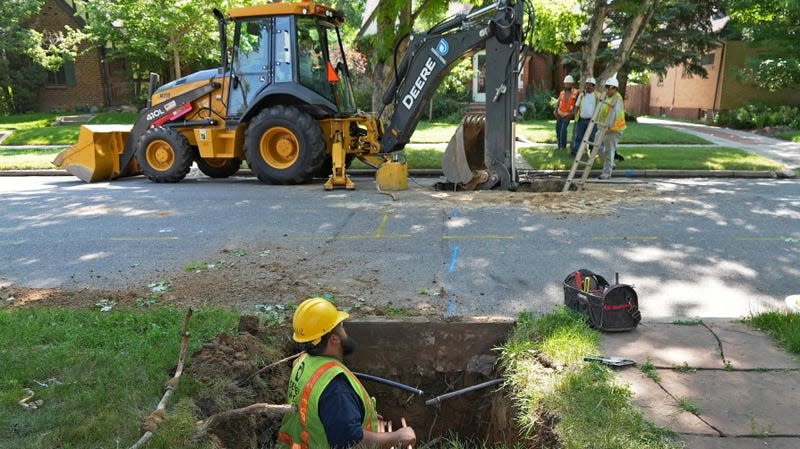EPA Green-Lights Denver’s $700 Million Plan to Finally Remove Lead Pipes

The Environmental Protection Agency recently approved an almost $700 million plan to remove lead water pipes in the Denver, Colorado area. The agency has called the local water utility’s efforts an “example” to other utilities around the country looking to replace their old lead water lines, the Associated Press reported.
The push to rapidly replace old lead water lines was a response to the high levels of lead found in Denver’s drinking water about decade ago. In 2020, city officials promised to replace between 64,000 and 84,000 lead pipes in 15 years. Since then, local utility Denver Water has dug up 15,000 lead pipes, which is about 18% to 23% of the lead lines in the city, The Denverite reported.
Read more
“Denver Water’s approach to tackling lead in drinking water has been remarkable and an example for other communities across the country,” EPA Regional Administrator KC Becker said in a statement. “Thanks to new funding from the Bipartisan Infrastructure Law the utility’s customers can expect an even faster lead service line replacement schedule delivering health protections for children and adults across the Denver area.”
The city’s urgency is justified—lead is a neurotoxin and even low levels of exposure are cause for public health concern. And though it can harm anyone, it is especially dangerous for developing children and infants, because “growing bodies absorb more lead than adults do and their brains and nervous systems are more sensitive to the damaging effects of lead,” according to the EPA. The overexposure leads to intellectual disabilities and behavior disorders that could have been prevented. Denver Water’s efforts have yielded some results, even though the utility is still working on removing lead water lines. The latest water tests have shown that lead levels in the city’s water have now dropped below the federal limit for exposure, according to the Associated Press. The city now regularly tests water for lead, and the water utility has given households free water filters while it continues replacing lead lines with copper pipes, according to The Denverite.
Denver is not the only U.S. city that is grappling with a lead problem. Just this September, an investigation from The Guardian found that one in 20 tap water tests in Chicago had lead levels at or above U.S. government limits. This meant 1,000 out of the 24,000 households tested had lead levels higher than recommended. The EPA says adults should only be exposed to 15 parts per billion (ppb) of lead and that there is no safe exposure level for children.
But unlike Denver, Chicago has been slow to meet its promise of replacing lead water lines. More than two years after city officials promised to begin removing lead pipes, only 0.5% of the more than 400,000 lead service lines in the city were replaced, WTTW Chicago reported this September.
More from Gizmodo
Sign up for Gizmodo's Newsletter. For the latest news, Facebook, Twitter and Instagram.

